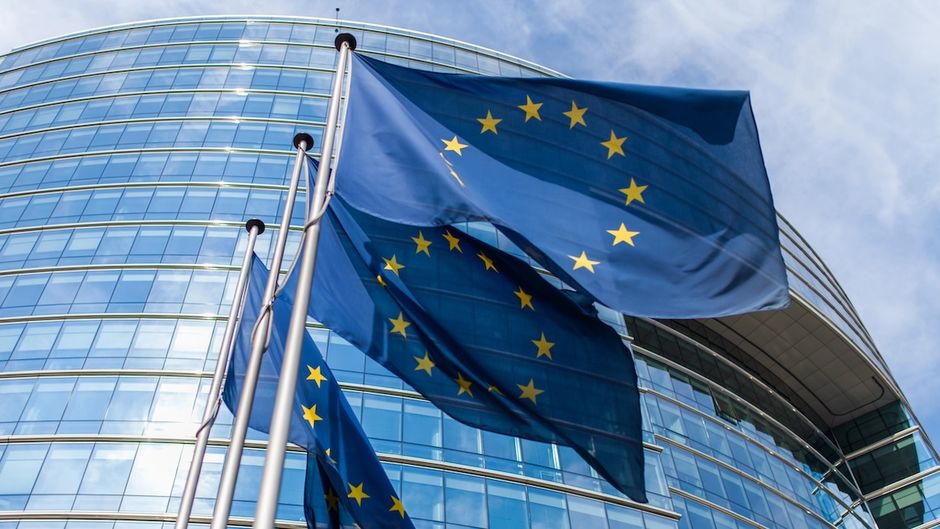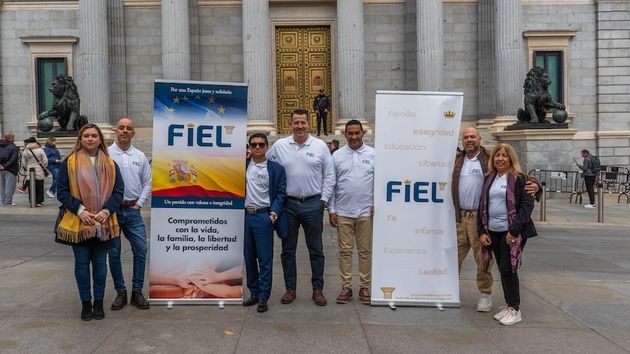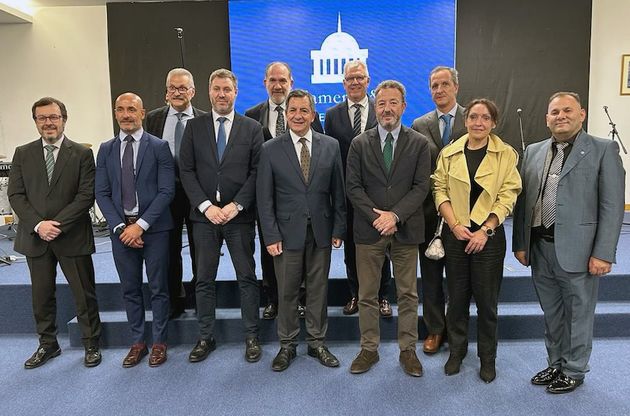The horizon of the European elections fuels evangelical interest in politics
The European Parliament elections are a strategic opportunity to launch new political parties. In countries like Spain, some dream of having a first-ever evangelical representative in Brussels.
Protestante Digital · MADRID · 29 JANUARY 2024 · 10:36 CET

Every five years, the European Union holds elections for its Parliament. In June 2024, the citizens of 27 countries will decide who represents them.
Most EU countries have a single national constituency which elects Members of the European Parliament (MEPs) for the whole country. This system, in which all votes cast are counted together, has made the European vote a launching pad for new political projects that hope to gain at least one seat. The has helped some emerging movements to gain ground on the national scene.
Politicians with a clear Christian worldview have been working in the Europe of Protestant heritage for a long time. There are movements that define themselves as evangelical or Protestant in the parliaments of the Netherlands, Finland and Switzerland (not a EU member).
Also in other parts of the world such as Latin America, the exponential growth of the evangelical population has been reflected in political participation over the last few decades.
And, of course, there are also many committed Christian believers who seek to live out their faith and values working inside mainstream political parties that do not adhere to a specific Christian ethos.
A Spanish evangelical MEP?
Spain will choose 61 of the 720 Members of the European Parliament. In this Sourthern country, the vote will take place on Sunday 9 June. Last time, in 2019, around 370,000 votes were needed to win a Spanish seat in Brussels.
Evangelical Christians in Spain represent a minority of between 1.5 and 2% of the population. So, is there a chance that for the first time ever an evangelical from Spain goes to the European Parliament?
Among the new movements that have announced they will compete in this EU election are two parties led by Christians. One is FIEL (Faithful), whose founding leaders are members of evangelical churches, and the other is Valores (Values), a Christian Democrat party led mainly by Roman Catholics but with some evangelicals in its leadership.
“For most elections, Spanish evangelicals do not have enough critical mass to have a chance of winning a seat, but for the European Parliament, we do”, says the secretary general of the Spanish Evangelical Alliance, Xesús Manuel Suárez, who has a long experience in political education within the evangelical community.
For Suárez, it would be possible to have an evangelical MEP from Spain “if all evangelicals unite to support a candidacy... That would mean to renounce centripetal and irrationally self-critical tendencies and commit ourselves to our own alternative”.
However, it would be necessary to “work on a well-articulated programme in all areas of political activity, with a consistent candidacy”.
Growing but limited interest
In recent months, two factors seem to converge in motivating a more intentional political participation of evangelicals in Spain. First, the significant evangelical growth - still largely linked to Latin American immigration - has led traditional political parties to seek contact with evangelical entities or fraternities of pastors.
Second, more evangelicals are becoming involved in socio-political debates around burning issues.

Suárez qualifies this greater involvement of evangelicals in politics. “It is an interest focused on some specific issues, such as abortion, euthanasia and sexuality. It is a selective interest. There is still not a clear awareness that we are instruments for the transformation of society as a whole, and this requires a holistic approach, not a segmentary one”.
For the leader of the Evangelical Alliance, evangelicals should “challenge the status quo and present a holistic alternative, a full amendment to the state of our culture”. He adds: “I admire our ancestors' ability to shape challenging models in all areas of human activity, from science to education, social relations, economics... And with that model they have transformed Europe and America for centuries”.
Before the Spanish general elections in 2023, the Group of Public Participation of the Evangelical Alliance released “Vote with an informed opinion”, a document that aimed to give a biblical perspective on economy, education, public health, territorial development and culture.
Regular contact with politicians
Partistan political activity is not the only way to participate in the public affairs. Regular contact with parties in the parliament is an alternative.
Parliament and Faith is an evangelical entity that emerged in Argentina but is already present in several countries. The aim is to bring the message of the gospel to political leaders. “We try to bring the biblical values under which we evangelicals live to politicians of all parties, and encourage them to work for the citizens”, explains Paco Sanchez, a Parliament and Faith representative in Madrid.
In recent years, Sánchez, a leader in a Pentecostal church, has organised several prayer meetings with politicians in the Madrid regional parliament. “We know some of them who are sensitive to such advice and we continue to work and pray that there will be many more”, he says.

The movement will organise a congress in Madrid this May, just a few weeks before the European elections, as well as another one later in Barcelona.
The need for training
One of the risks that have become evident in recent years is the political exploitation of any social group.
For Manuel Suárez of the Evangelical Alliance, it is essential “to go back to the Bible, and then to the Protestant thinkers who laid the foundations of the Western democratic system”.
“Before entering the political arena, evangelicals must be clear about the model of society they want, their political utopia. Studying the Word of God and reading Protestant authors, especially Calvinists” would be most helpful, he thinks.
If Christians do not do so, “they will be defenceless and carried away by any wind of doctrine (Eph 4.14) that promises them laws against abortion and gay marriage”, warns Suárez.
In this direction of laying good foundations, one of the projects that has been developed in the lat years, in collaboration with the evangelical student movement GBU (IFES in Spain), is a school of political training, especially focused on students and young graduates.
Alternatives
But the questions remains: should Christians set up new political parties or join larger existing ones?
Suárez believes that both options are valid as long as the people involved know what they want to achieve.
But the former politician warns against letting others “make us pigeonhole in pure conservatism, making us believe that this is our natural place”. In his view, the “natural place for evangelical Christians “is in the progressivism: the brethren who broke the social bonds of the Roman Empire, were they conservatives or progressives? And the revolutionary Hussites? And those who stood up to Charles the Fifth and said: we protest?”
Suárez laments that the word progressive has been “appropriated by others”. “Instead of unmasking their false progressivism, we have given them the flag and ended up blaspheming about progress”.
Key evangelical concepts for society
In that search for an original political vision, “there are values that many people in society still defend, such as the family as a key instrument of social strength and progress; it is worth making synergies with non-evangelicals on these issues”.
But Suárez also hopes that committed Christians will be able to “come up with original proposals, for example, the enhancement of the rights of the individual, which are diminishing; the right to disagree, to dissent and to civil disobedience; the recovery of the leading role of civil society; the fight against corruption, starting by leading by example; the recovery of the Calvinist model of the sovereignty of the spheres, or economic models that are based on biblical principles”.
In a society that is divided and, in many cases, tired of repetitive and incoherent discourese, there is a window of opportunity that evangelicals hope to take advantage of.
The European Elections of June will test the chances of these new projects.
One more year
Learn all about our #OneMoreYearEF campaign here (English).
Published in: Evangelical Focus - europe - The horizon of the European elections fuels evangelical interest in politics
